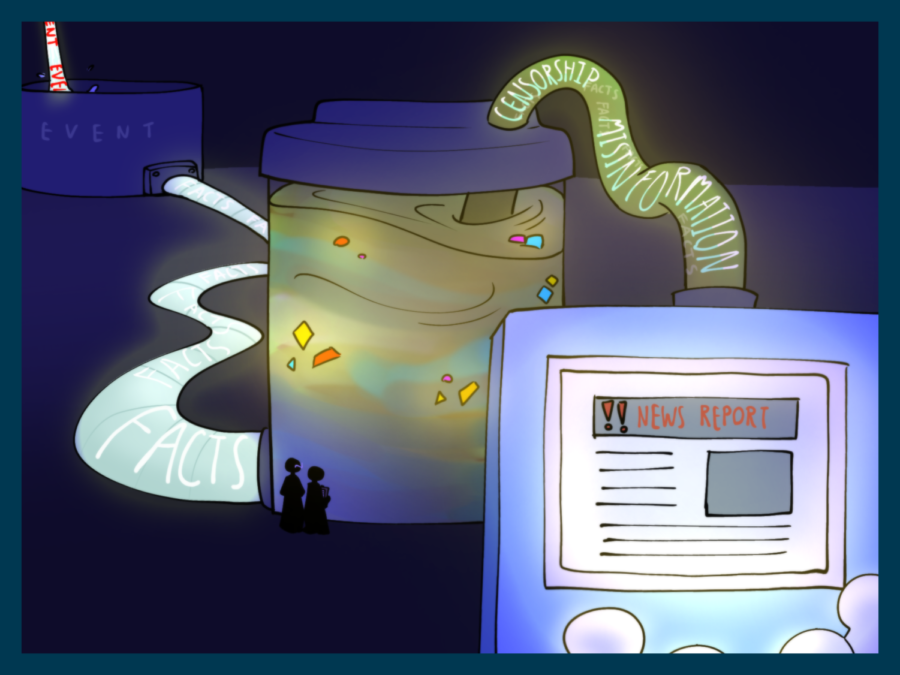Should a Journalist’s Opinion Impact What They Write?
March 29, 2023
We exist in a time where it is impossible to stumble across quality news sources. Every site seems to bear a different opinion, each newspaper reports a slightly different version of events. There is no doubt that media bias is deeply ingrained in our society, affecting everything from people’s personal philosophies to their view of circumstances. Media bias is the unjust preference of certain opinions when solely facts should be broadcasted. It’s the repetition of false claims and professions. And, sadly, it is impossible to escape.
Political motivation acts as the main reason for media bias, where outlets withhold or refuse to disclose certain information to fit the party that the news site aligns with. An example is the Daily Telegraph’s conservative stance on the LGBTQIA+ community. A multitude of stories that the newspaper has covered was found to be misleading and offensive, with a variety of experts sharing their disdain for the reports. Prejudiced coverage such as this greatly sways the public’s general perception of events. Reporting outright offensive stories subsequently plays a major role in the issue many cherish against media outlets.
Media bias is also exemplified in a photo taken from the Hurricane Katrina reports of 2005. A pair of pictures depict a multitude of victims searching for food after the natural disaster. However, one of the photos focuses on a man of African American descent, paired with the caption ‘A young man walks through flood water after looting a grocery store”. This hints at the fact that the man is committing an illegal act, one that he should be publicly shamed for. The real controversy, however, lies in the other photo. It focuses on a woman with a lighter skin tone, completing the exact same action. Yet, the caption focuses on the courage of the survivor, having the bravery to make do after traumatic events. And as a result, the racism of the news sight shines through, poisoning any reader with their horrendous beliefs. This is a prime example of the twisted bias that is still present in many media outlets, which choose to focus on personal views rather than reporting the truth.
Interestingly, it is not solely traditional news sites that are recounting harmful ideologies. The common advertisements that flood screens continue to sustain stereotypes that have polluted society for centuries. Curiously, sexist stereotypes are still overtly present in many companies’ marketing strategies. From depicting solely women in cleaning commercials to outdated car advertisements, millions of people are taking in these worrying messages daily.
Pages and pages could be written on this topic, highlighting and naming every source that is good and shaming the ones that are prejudiced. Yet rather than trying to change the status quo currently, it is essential that the next generation is educated in recognising these biased sources and given the ability to form their own opinion regardless of what mainstream media is stating. All society can do now is paving the way for a brighter and better future, one where news sites can actually be counted upon to serve their main purpose – recounting quality stories that can be trusted.












